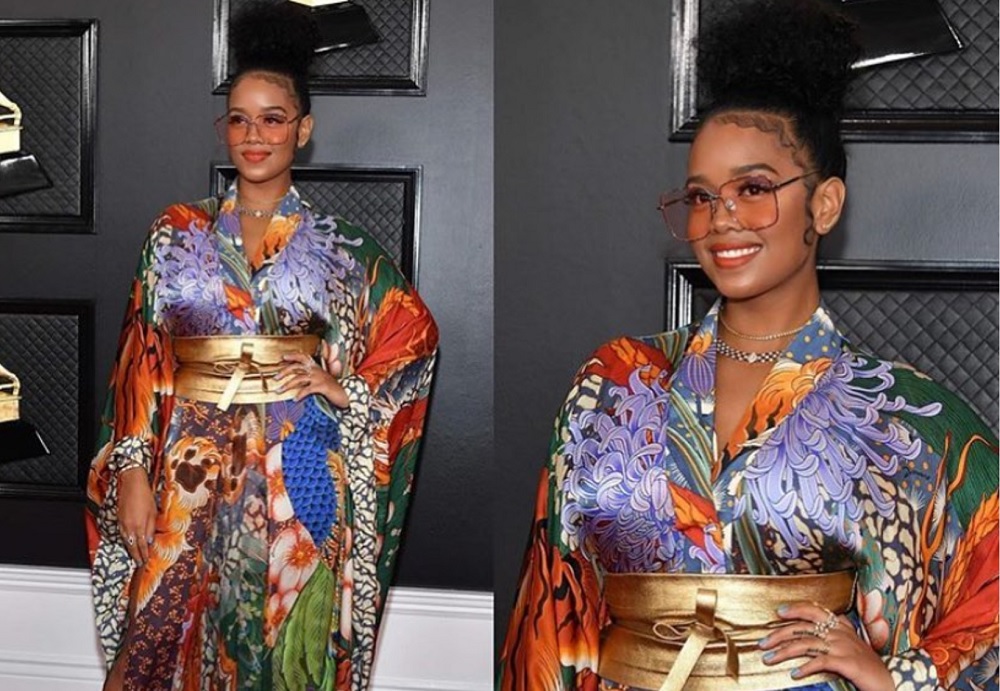
The 62nd annual Grammy Awards took the stage at Los Angeles’s Staples Center Sunday, and the grief that arose from Kobe Bryant’s sudden, tragic death was palpable. His name came up over and over again on the red carpet, and interviews were scuttled because celebs were coping with that grief. DJ Kahled was one of many who dedicated his red carpet interview to grief for Bryant.
As the artists took the stage, mourners gathered outside the Staples Center. The fashion choices were relatively subdued. There were no big stand-outs of wild, attention-seeking rebellion, but more simple lines, beauty couched in sorrow. This could have been coincidence, but it was certainly a sign of our times, where there is no room for real rebellion, because relativism has no alternative.
Fashion is how we imagine ourselves, both form and function of the human body, what we are capable of and what we have come through. Lines and silhouettes that complement the female form gave way over the years to statements on our ugliness, and the ways we can transform our bodies beyond the beautiful.
Awards shows are traditionally a stage where outlandish looks can be paraded before and gawked at by fans and media. As fun as it is to critique the wild outfits and overactive egos, it can be inspiring to see stars take risks. But what does a risk look like when everything is permissible? Boundaries are uncrossable because they don’t exist.
The Grammy Awards’ red carpet is a little different from other entertainment awards, because musicians’ looks are about more than being attractive: rebellion, busting expectations, and building an artistic reputation. Twenty years ago, the Grammy awards were notable for their wild outfits. J-Lo’s Versace Jungle Dress, Toni Braxton in barely belted on Richard Tyler, and sartorial expressions that pushed all the envelopes.
These conceptions of the human form spoke to our hopes for the coming century and our interpretation of where we’ve been. Twenty years on, we find that we are more boxed in, more timid, and less optimistic than we used to be.
This year’s red carpet was missing the wild looks of Bjork, Lady Gaga, Rihanna, and Janelle Monae. Instead we had Ariana Grande in grey wedding cake pouf, patented pony tail, and pout.
Here’s Billie Eilish in green and black sparkle boxy Gucci, which is edgy specifically because it covers so much more than it reveals.
Bebe Rexha wore a chain mail sheer shirt under a blazer, wanting to wear a “boss look, a little bit of glamour.”
Gwen Stefani looked great in a white, Dolce & Gabanna strapless mini dress and thigh-high white boots.
Some of the best outfits were simply classics. Here’s H.E.R. in a gorgeous kimono.
Camila Cabello wore an inspired black lace, strapless gown.
Tyler, the Creator, pulled off a Wes Anderson bellboy look circa “The Grand Budapest Hotel.”
In his set, he took a pop art approach, with his hair reminiscent of Andy Warhol, his color chromatic suit, and a dozen dancers outfitted just like him, his doubles, his clones, his legions, alter egos that ran wild through the Staples Center while the stage appeared to burn.
Lizzo turned out in a dress that looked like the clear night sky, pinpricks of starlight draped around her. In her set, ballet dancers that were anything but Balanchine ideals of womanhood daintily danced around her.
Alicia Keys looked like a Grecian column in Versace. Mourning Kobe, she asked everyone to “take a moment and hold them inside of you, and share our strength and our support with their families.”
Billy Porter played with gender, but that’s basically boring by now. There’s nothing interesting anymore in gender-bending looks, because costume is a daily thing, and gender isn’t bent but bought and sold to us.
What the Grammys showed us, oddly, is a culture in crisis. No matter how much fame or adulation, how many award noms and costume changes, meaning is missing. Nowhere was this clearer than in Demi Lovato’s set.
She sang about how hard it is to find any relevancy in one’s life, to stake a claim to your own meaning. This was her first public performance since 2018, when she suffered a drug overdose. As much as the musicians and artists come together, call each other brother and sister, and feel in these moments of pinpoint adulation meaning, matter and weight, they don’t really know what their place is in culture.
Are our artists our guides, or reflection of our zeitgeist, are they who we wish we were, what we aspire to be, are they our honesty? They don’t know, and neither do we. Yet we launch awards shows year after year, not sure what we’re searching for, not sure what we’re awarding, wondering before and after who we are, what we want, and never quite landing with the idea that anything truly matters.
We are each like pinpricks of light on Lizzo’s great big dress, and it’s impossible to look at just one bit of bling without taking in the whole vast expanse.
Entertainment - Latest - Google News
January 27, 2020 at 07:17PM
https://ift.tt/2Gu9bVg
The Best Outfits Of The 2020 Grammy Awards - The Federalist
Entertainment - Latest - Google News
https://ift.tt/2RiDqlG
Bagikan Berita Ini














0 Response to "The Best Outfits Of The 2020 Grammy Awards - The Federalist"
Post a Comment